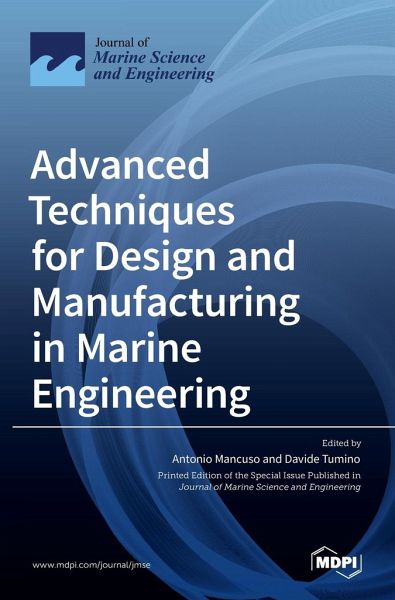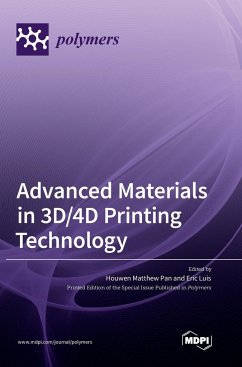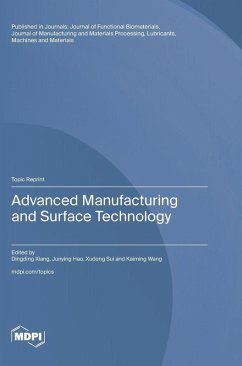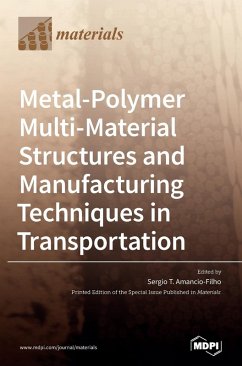
Advanced Techniques for Design and Manufacturing in Marine Engineering
Versandkostenfrei!
Versandfertig in 1-2 Wochen
69,99 €
inkl. MwSt.

PAYBACK Punkte
35 °P sammeln!
Modern engineering design processes are driven by the extensive use of numerical simulations; naval architecture and ocean engineering are no exception. Computational power has been improved over the last few decades; therefore, the integration of different tools such as CAD, FEM, CFD, and CAM has enabled complex modeling and manufacturing problems to be solved in a more feasible way. Classical naval design methodology can take advantage of this integration, giving rise to more robust designs in terms of shape, structural and hydrodynamic performances, and the manufacturing process. This Speci...
Modern engineering design processes are driven by the extensive use of numerical simulations; naval architecture and ocean engineering are no exception. Computational power has been improved over the last few decades; therefore, the integration of different tools such as CAD, FEM, CFD, and CAM has enabled complex modeling and manufacturing problems to be solved in a more feasible way. Classical naval design methodology can take advantage of this integration, giving rise to more robust designs in terms of shape, structural and hydrodynamic performances, and the manufacturing process. This Special Issue invites researchers and engineers from both academia and the industry to publish the latest progress in design and manufacturing techniques in marine engineering and to debate the current issues and future perspectives in this research area. Suitable topics for this issue include, but are not limited to, the following: - CAD-based approaches for designing the hull and appendages of sailing and engine-powered boats and comparisons with traditional techniques; - Finite element method applications to predict the structural performance of the whole boat or of a portion of it, with particular attention to the modeling of the material used; - Embedded measurement systems for structural health monitoring; - Determination of hydrodynamic efficiency using experimental, numerical, or semi-empiric methods for displacement and planning hulls; - Topology optimization techniques to overcome traditional scantling criteria based on international standards; - Applications of additive manufacturing to derive innovative shapes for internal reinforcements or sandwich hull structures.












